Encuentre rápidamente un dentista de urgencias cerca de usted.
Si tiene un diente agrietado, un empaste perdido, una inflamación que no cede o algo que no le sienta del todo bien, necesita ayuda dental urgente. Encuentre un dentista de urgencias con nuestra herramienta de búsqueda.
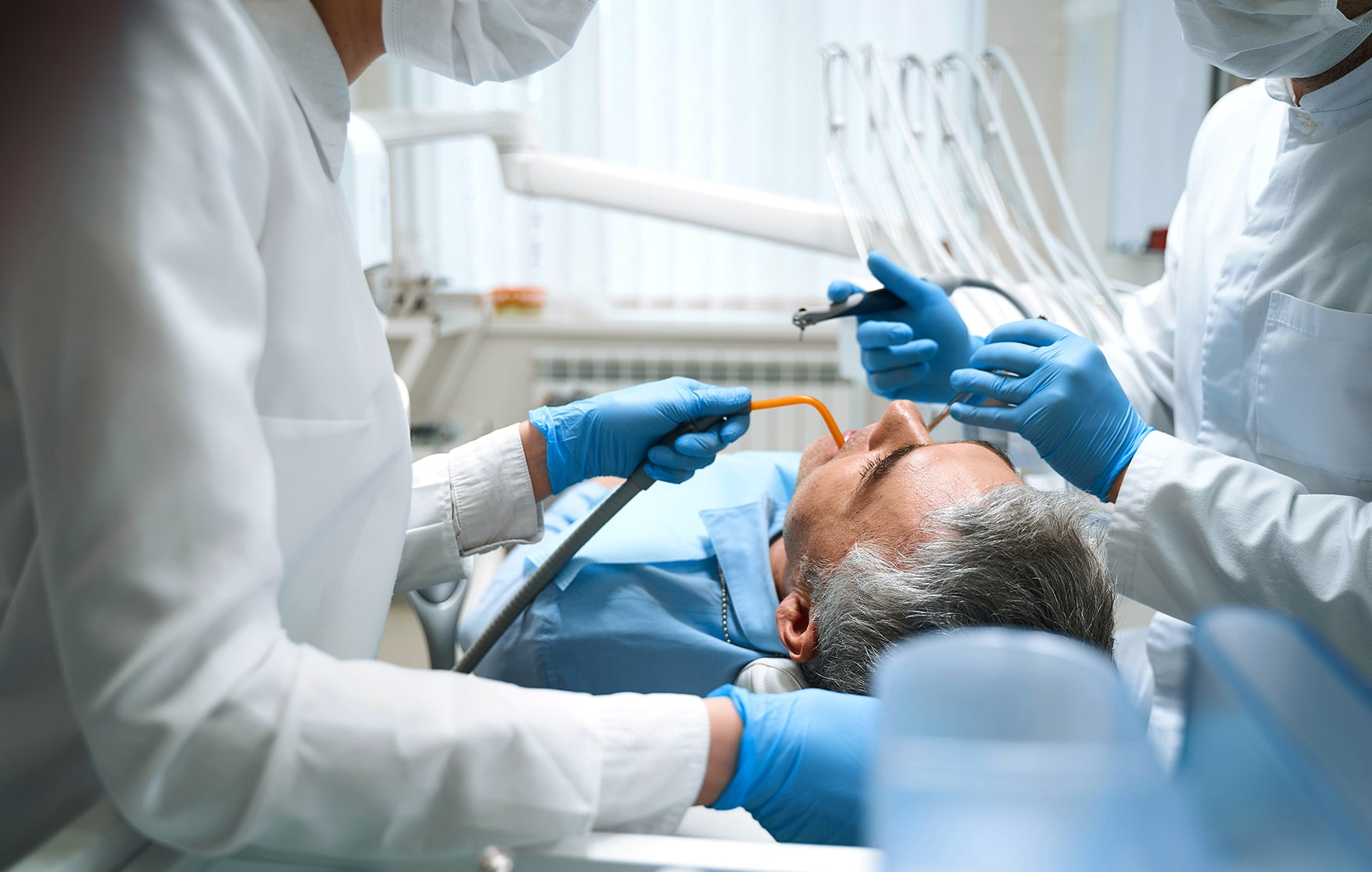
Idioma
Cobertura
Tipo de asistencia
Cobertura
Idioma
Tipo de asistencia
Carga de consultas dentales...
¿Qué se considera una urgencia dental?
Dolor de muelas intenso
Dolor persistente que interfiere con las actividades cotidianas.
Diente agrietado o roto
Daños por heridas o por morder objetos duros.
Absceso dental
Diente infectado que requiere tratamiento inmediato.
Hinchazón facial
Hinchazón que puede indicar una infección grave.
Pérdida de empastes o coronas
Trabajos dentales que se han aflojado o caído.
Traumatismos dentales
Lesiones por accidentes o deportes.
Qué esperar de una visita a urgencias
Revisión
El dentista evalúa su situación, puede tomar radiografías y determinar el problema.

Alivio del dolor
Cuidados rápidos para aliviar el dolor y ayudarle a sentirse mejor rápidamente.

Plan de tratamiento
Pasos siguientes sencillos y bien explicados, para que sepas cómo solucionar el problema.
No espere a que sea demasiado tarde
El dolor dental no se arregla solo. Lo que hoy es soportable, mañana puede ser mucho peor y más caro.
- Detener el dolor antes de que empeore
- Proteja sus dientes y su salud
- Ahorrar dinero, potencialmente, evitando procedimientos mayores en el futuro.
Aunque el dolor aparezca y desaparezca, el problema subyacente suele permanecer. Mejor saberlo que preguntárselo.

¿Emergencia o no? Cómo saberlo
No todos los problemas dentales implican dejarlo todo y salir corriendo. Pero algunos sí.
Llame ahora a un dentista si tiene
- Dolor agudo y continuo
- Hinchazón, especialmente en la mandíbula o la cara
- Hemorragias que no cesan
- Un diente caído... ¡se puede salvar!
Si tiene fiebre de más de 38 °C que dura más de un día, signos de infección o dificultad para respirar, póngase en contacto con su médico de cabecera.
Probablemente puede esperar un día, si usted tiene
- Un dolor sordo
- Un diente astillado sin dolor
- Un empaste o una corona perdidos que no duelen
- Sensibilidad leve
¿Aún no está seguro? Más vale prevenir que curar. Una llamada rápida lo aclarará.
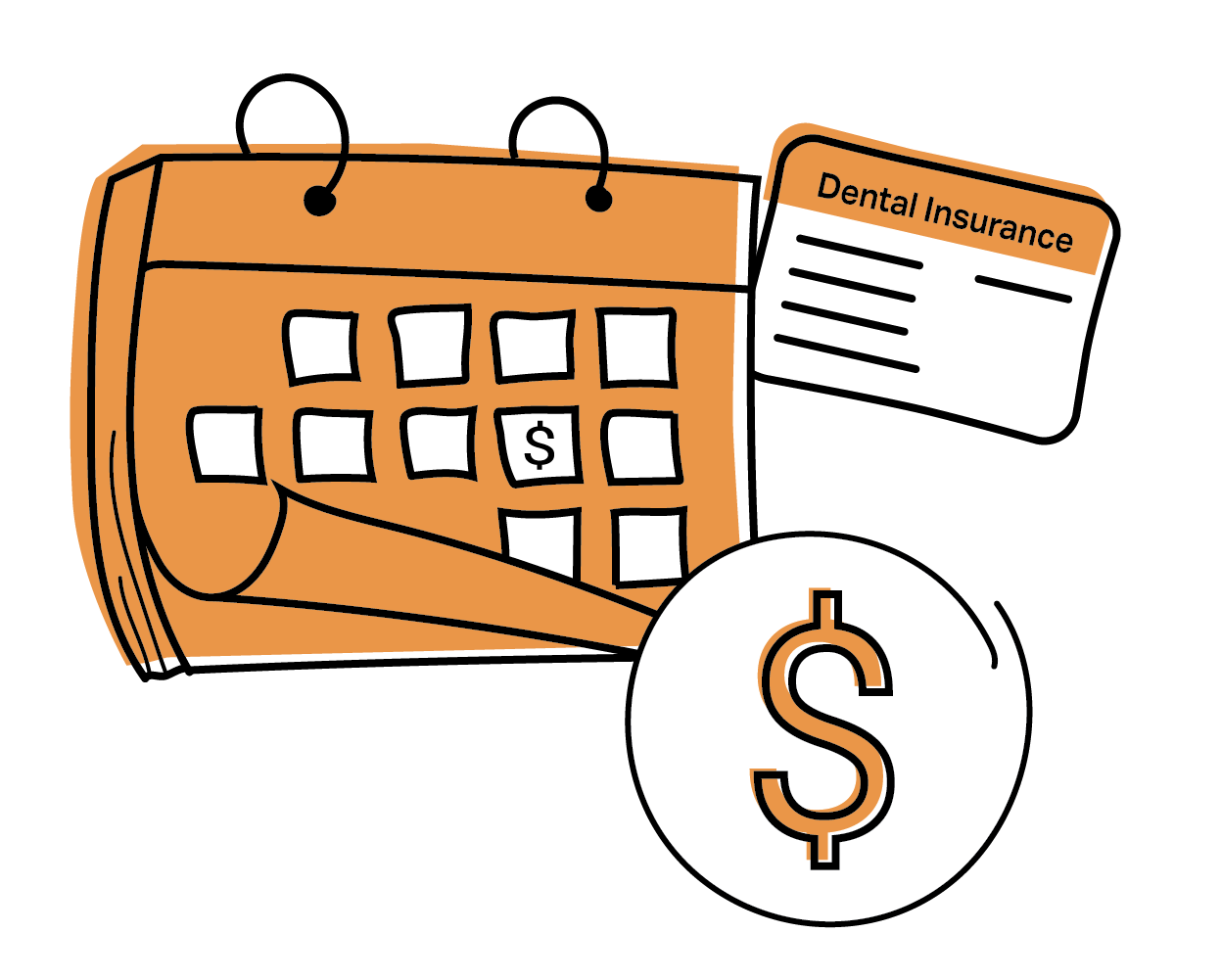
¿Le preocupa el coste? Hablemos de opciones.
Las urgencias dentales no se planifican y rara vez se tienen en cuenta en el presupuesto. La buena noticia es que tienes opciones.
- Planes dentales de ahorro: Algunas oficinas ofrecen planes de afiliación que reducen el coste
- Planes de pago: Reparte el coste en el tiempo, aunque no tengas seguro
- Ayuda del seguro: El personal puede ayudarle a comprender lo que cubre su plan
- Descuentos por pagos en efectivo: Muchas oficinas colaboran con usted si no tiene seguro.
Pregunte por los costes y opciones de pago al reservar su visita. Es útil saber qué esperar.
Atención dental de urgencia para niños
Los niños también tienen problemas con los dientes... desde caídas en el patio de recreo hasta dolores misteriosos, y mucho más. Sepa qué hacer si a su hijo le duelen los dientes.
- Mantenga la calma. Tu hijo te seguirá.
- Los dientes de leche y los dientes adultos se tratan de forma diferente, por lo que te pondremos en contacto con el dentista adecuado.
- Si se te cae un diente, ponlo en leche o saliva y llévalo contigo (no intentes volver a poner un diente de leche).
Los dentistas pediátricos de urgencias están altamente cualificados para mantener a los niños tranquilos, explicarles lo que está ocurriendo y utilizar técnicas suaves que hacen que una situación aterradora sea mucho más fácil.
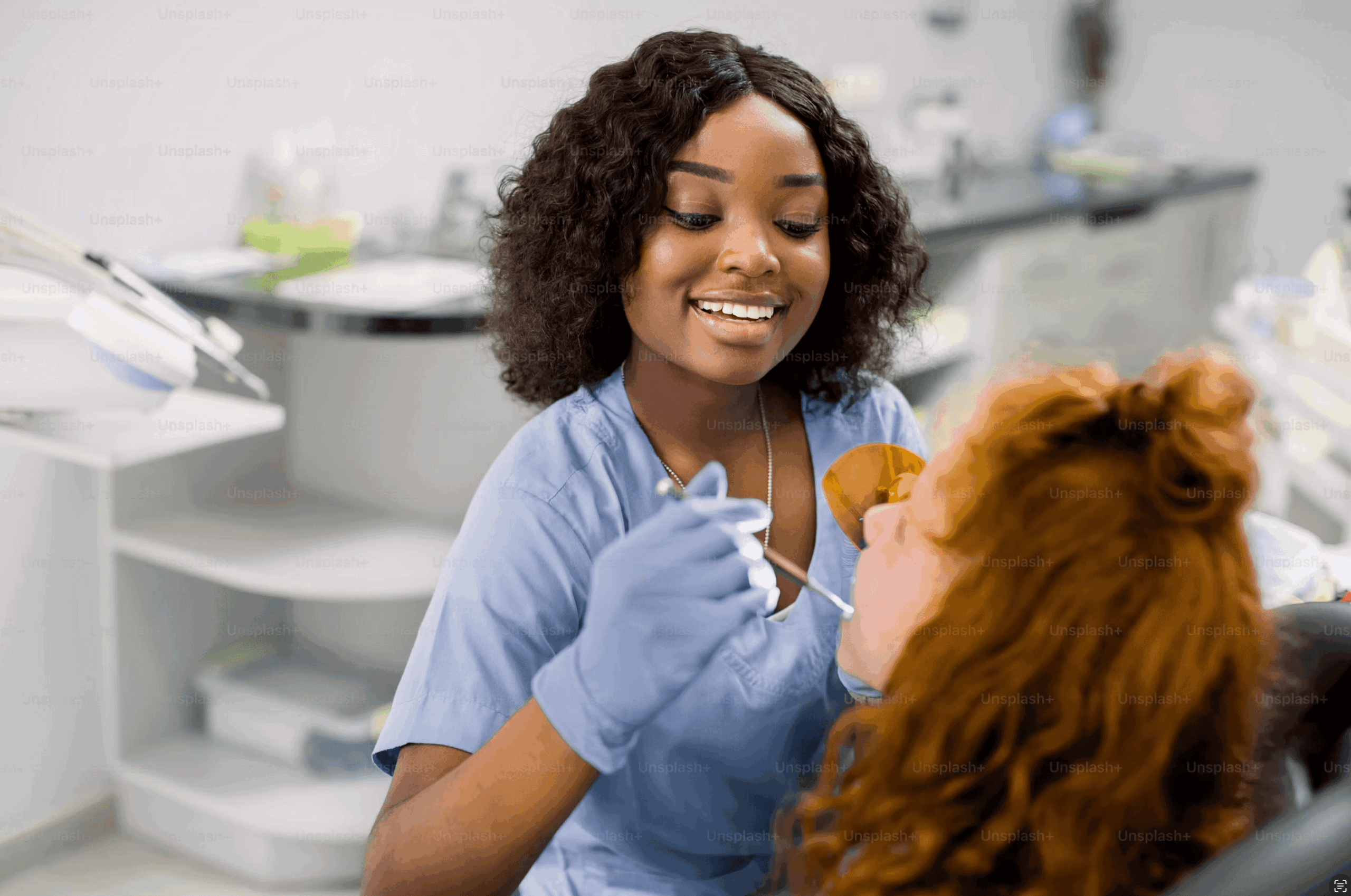
Qué llevar y cómo prepararse
Para que su visita sea lo más fluida posible, procure llevar lo siguiente
- Un documento de identidad con fotografía
- Su tarjeta del seguro, si la tiene
- Cualquier aparato dental o piezas de un diente roto
- Una lista de los medicamentos que está tomando
- Notas sobre su historial dental, si lo conoce
Qué llevar y cómo prepararse
Y no dude en hacer preguntas. Aquí tienes algunas buenas para empezar
- ¿Cuál es la causa del dolor?
- ¿Qué opciones tengo?
- ¿Qué cuidados debo tener después del tratamiento?
Encuentre un dentista de urgencia cerca de usted
No tiene por qué sufrir, adivinar o esperar. Encuentra ahora un dentista de urgencias cerca de ti y obtén la ayuda que necesitas.
Preguntas frecuentes
¿Qué se considera una urgencia dental y qué un problema menor?
Dolor intenso, hinchazón, hemorragia o un diente desprendido = urgencia. Un dolor leve o un diente astillado sin dolor suelen poder esperar uno o dos días.
¿Con qué rapidez debo ponerme en contacto con un dentista tras la caída de un diente?
Inmediatamente. Lo mejor son 30 minutos. Mantén el diente húmedo (con leche o saliva) y llama inmediatamente al dentista para aumentar las posibilidades de salvarlo.
¿Puedo acudir a un dentista de urgencia sin seguro?
Sí. Muchos dentistas de urgencias aceptan pacientes sin seguro y ofrecen planes de pago, descuentos por pronto pago o planes de ahorro para socios para que la atención sea más asequible.
¿Cuánto suele costar la atención dental de urgencia?
Los costes varían según el tratamiento y el lugar. Los exámenes cuestan entre $100 y $300, y los procedimientos tienen un coste adicional. Pregunte por la flexibilidad de pago por adelantado, ya que muchas oficinas trabajarán con usted.
¿Qué pasos debo seguir mientras espero para ver a un dentista?
Enjuágate suavemente con agua salada, usa compresas frías para la hinchazón y toma analgésicos de venta sin receta. Evita masticar en el lado afectado.
¿Cuándo debo acudir al servicio de urgencias de un hospital en lugar de al dentista?
Si tienes problemas para respirar, fiebre alta, hinchazón facial o crees que te has roto la mandíbula, acude a urgencias. Puede tratarse de una urgencia médica.
¿Ofrecen los dentistas de urgencias sedación o cuidados especiales para pacientes ansiosos?
Sí. Muchos ofrecen opciones de sedación, entornos tranquilizadores y cuidados adicionales para niños, adultos ansiosos o pacientes con necesidades especiales. Pregúntenos cuando llame.
¿Cubre mi seguro dental las visitas y tratamientos de urgencia?
La mayoría de los planes dentales cubren las urgencias, pero la cobertura puede variar. Ponte en contacto con tu proveedor o pregunta en la consulta del dentista para comprobar qué está incluido y cuál será el coste de tu bolsillo.
¿Qué debo hacer si se me rompe una corona o pierdo un empaste hasta mi cita?
Mantén la zona limpia y evita masticar en ella. El cemento dental de venta libre puede ayudar a cubrir la mancha temporalmente. Llámanos para que te veamos lo antes posible.
¿Qué debo llevar a una cita urgente con el dentista?
Tu DNI, la tarjeta del seguro (si la tienes), una lista de medicamentos, cualquier pieza dental rota y notas sobre tus síntomas o historial médico. ¡No olvides preparar algunas preguntas!
¿Puedo pedir cita en el mismo día por Internet para recibir atención dental urgente?
Nuestros dentistas de urgencias ofrecen citas para el mismo día o para el día siguiente.
¿Cómo puedo prevenir las urgencias dentales en el futuro?
Cepíllate los dientes y usa hilo dental a diario, ponte un protector bucal cuando practiques deporte, evita masticar objetos duros y acude a revisiones periódicas. La detección precoz de pequeños problemas puede evitar problemas mayores.
¿Cuál es la mejor manera de cuidarme después de una intervención dental urgente?
Siga las instrucciones de su dentista, tome los medicamentos prescritos, evite los alimentos duros, mantenga una higiene bucal suave, controle la inflamación con compresas frías y esté atento al dolor o a síntomas inusuales.
Información relacionada
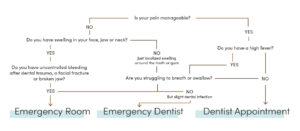
¿Debe acudir a urgencias por dolor de muelas? Guía rápida
La conveniencia de acudir a urgencias por dolor de muelas depende de la gravedad del dolor y de los demás síntomas que experimentes. Sigue leyendo y te ayudaremos a decidir cómo aliviarte.
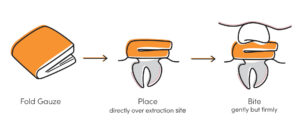
Cómo detener el sangrado después de la extracción del diente: Consejos fáciles para un alivio inmediato
Tras la extracción de un diente, es normal que se produzca una hemorragia en la zona, que suele remitir en 2-3 horas. Durante las primeras 24 horas suele seguir supurando suavemente (saliva rosada). A continuación encontrarás consejos para ayudar a detener la hemorragia y cómo diferenciar entre una recuperación normal y los signos que indican que debes llamar a tu dentista.
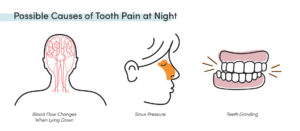
¿Por qué me duelen los dientes por la noche? 5 posibles razones y lo que puede hacer ahora mismo
Los problemas dentales suelen doler más por la noche porque al estar tumbado aumenta el flujo sanguíneo a la cabeza, lo que incrementa la presión y la sensibilidad. Otras causas comunes son el aumento de la presión en los senos paranasales y apretar y rechinar los dientes inconscientemente. Aunque la solución a largo plazo puede requerir una visita al dentista, hay medidas que puedes tomar inmediatamente para obtener cierto alivio.
